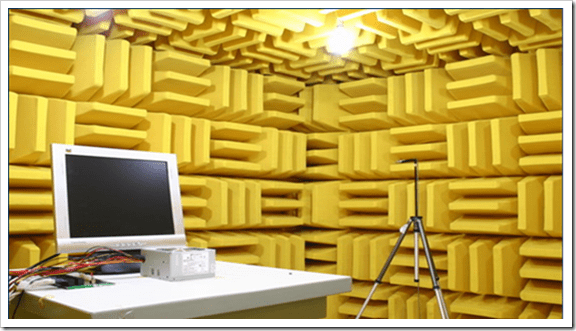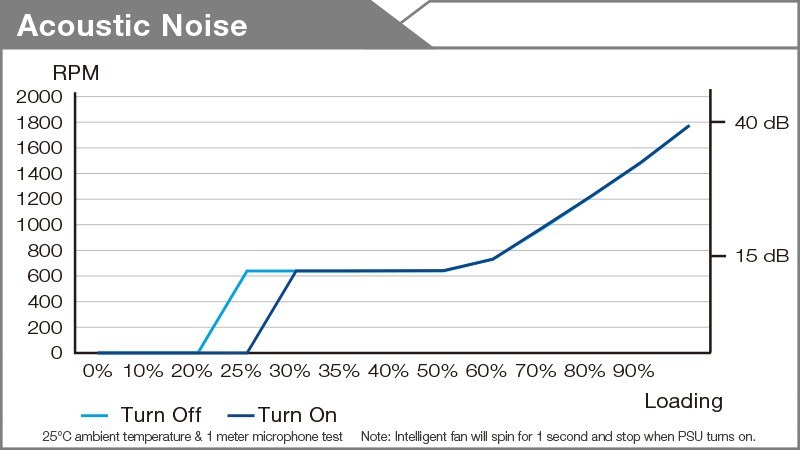Noise Design Requirements for Power Supplies
Power supply is one of the few pieces of hardware in a PC to be equipped with cooling fans, and it is also the hardware that generates noises next to the CPU cooling fan and the video card. When gamer demands in hardware specifications grow higher, the output Watts of the power supply also increased. Thus, more heat is produced via energy exchanges inside the PC that needs to be dissipated by the cooling fans. In order to satisfy the demands of most PC gamers, the design of the power supply, other than improving energy conversion ratio to reduce heat generation, engineers also strive to work on the electronic components to facilitate the establishment of the cooling system, as well as considerations in choosing cooling fans.
In the past, in terms of cooling, the development and design of a power supply usually focused only on its stability and quality, and overlooked the tolerance of noises for the gamers. With the rapid developments in the eSports industry, as well as how the gamers wish not to be disturbed by noises when playing games, the fans rotation speed is adjusted on the premise that the noise-generating components can withstand the temperature, so the noise level is reduced to the lowest, or an acceptable range. The FSP Group is one of the few professional manufacturers in power supplies. We have semi-anechoic chambers in our R&D building and factories, as well as requiring the testing of this item in the verification procedure of every product in the development process. Other than demanding key components in rising temperatures to conform to safety regulations, the rotation speed of the cooling fans is also reduced to the level demanded by the clients. When mass producing a new product in the factory, the QA personnel also take random sampling of the products, and verify the consistency of the test data in the semi-anechoic chamber. Below is a photo of the semi-anechoic chamber.

The FSP Group’s test procedures clearly designate the method for power supply noise measurements. First, the test subject is placed in the middle of the testing platform, and the microphone is set on a 30-degree angle at the cooling fan on the power supply. The power supply’s power input is connected to a programmable external AC power supply, connecting the output to a programmable external DC loader at the same time. At this time, the test engineer will adjust the AC input voltage and DC loader in accordance with client demands or internal company regulations, to test the noise level of the power supply. The connection diagram of the test is as follows:

The internal regulation of the FSP Group is to conduct test on 6 different loads (0%, 20%, 40%, 60%, 80%, 100%) under three types of AC input current settings (maximum voltage safety test, standard city grid voltage, minimum voltage safety test) and record the test results, under the conditions that the test subject is switched on and preheated for 20 minutes. The fan speed adjustments on new models usually take long, which require more than just lowering the fan speed to reduce noises. The test engineer will repetitively measure the adjusted fan speed to see whether it affects the temperature-rise value of key components, until all temperature-rise values fall within acceptable range, as well as the accepted noise level of the clients or PM, until proceeding to the next stage.
Some brands in the industry are not professional power supply manufacturers. Brands with verification capabilities would require their manufacturers to not sacrifice temperature-rise values in the components while adjusting fan sped and noise levels of the power supply. However, there are only a few brands with the capability in authenticating these items. On top of that, only a few power supply manufacturers have semi-anechoic chambers and other temperature-rise testing equipment at their disposal, therefore, many brand products sacrificed quality for low-noise generation. Consumers must pay special attention in choosing brand products with design capabilities and good reputation.
Learn more about FSP, an AC/DC power supply manufacturer

